In familiar pattern, Trump pulls back from brink of crisis of his own making: ANALYSIS
His response to Iran's strike is an abrupt shift from his recent rhetoric.
President Donald Trump's conciliatory tone toward Iran Wednesday marked an abrupt shift away from his recent threatening rhetoric and fits a pattern: pulling back from the brink of crises largely of his own making.
By dismissing Iran's overnight missile salvo on bases housing U.S. troops -- and de-escalating the situation without further warnings of a military response -- Trump contradicted his own claim the day before that, if Iran were to launch an attack, the U.S. was "prepared to attack if we have to, as retribution."
Just days earlier, he had promised on Twitter that the U.S. would "hit" Iran "very fast and very hard" if "Iran strikes any Americans, or American assets."
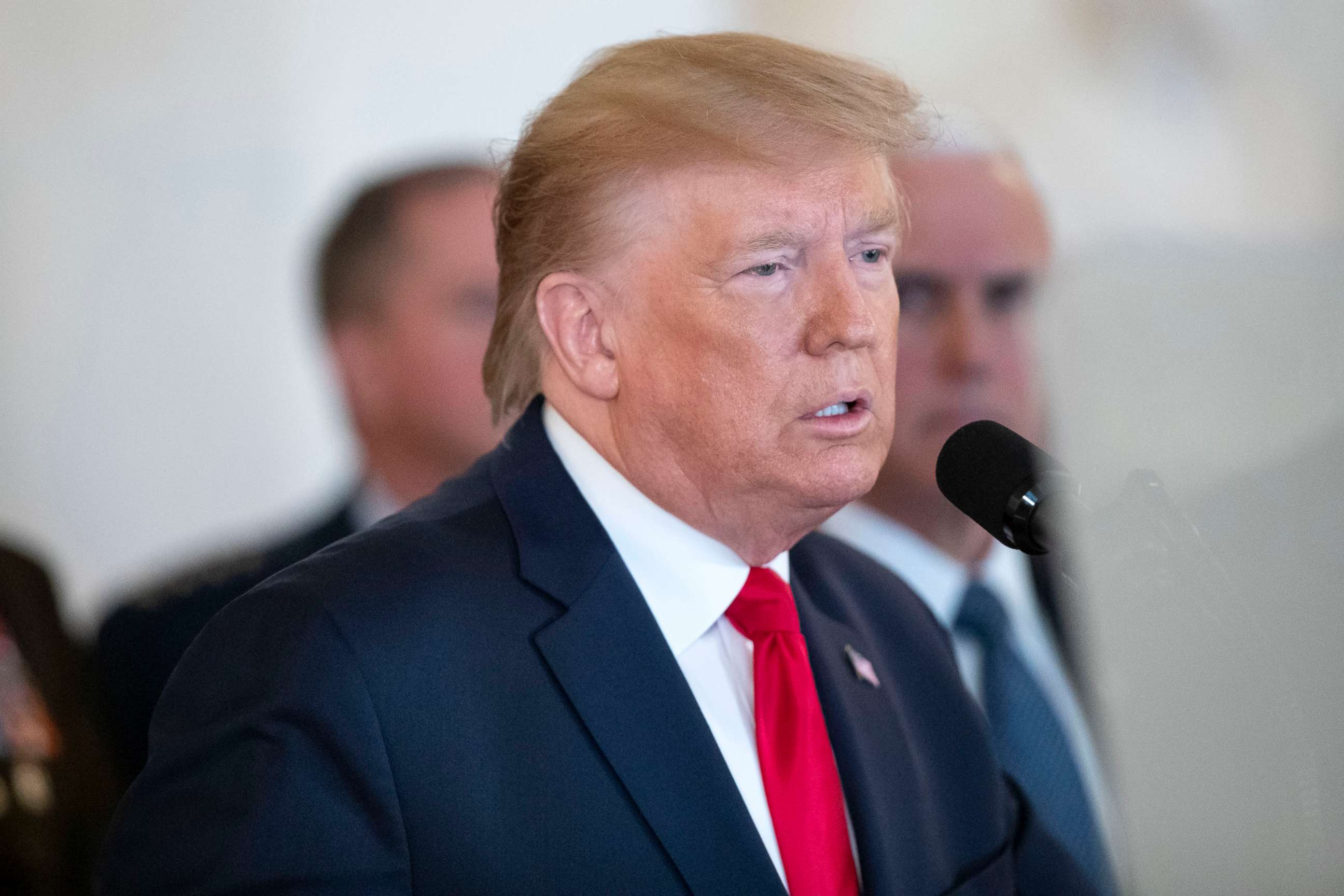
The sea change in rhetoric mirrored past instances of the president escalating international crises only to modulate his tone and approach, punching hard before seizing off-ramps.
In 2017, he warned North Korea would "be met with fire and fury like the world has never seen," only to then meet with its leader, Kim Jong Un, and declare that there was "no longer a nuclear threat" from the North. He launched a trade war with China that has cost American consumers and manufacturers billions of dollars, only to call off some sanctions when China agreed to a smaller trade deal.
He has threatened to shut down the border with Mexico and sanction all imports from the country -- igniting diplomatic crises -- only to quickly back down after gaining limited concessions.
As the situation in Iraq unfolded Tuesday night, the president met with his national security team in the Situation Room, a briefing captured in photographs released by the White House reminiscent of images of previous decisive moments.
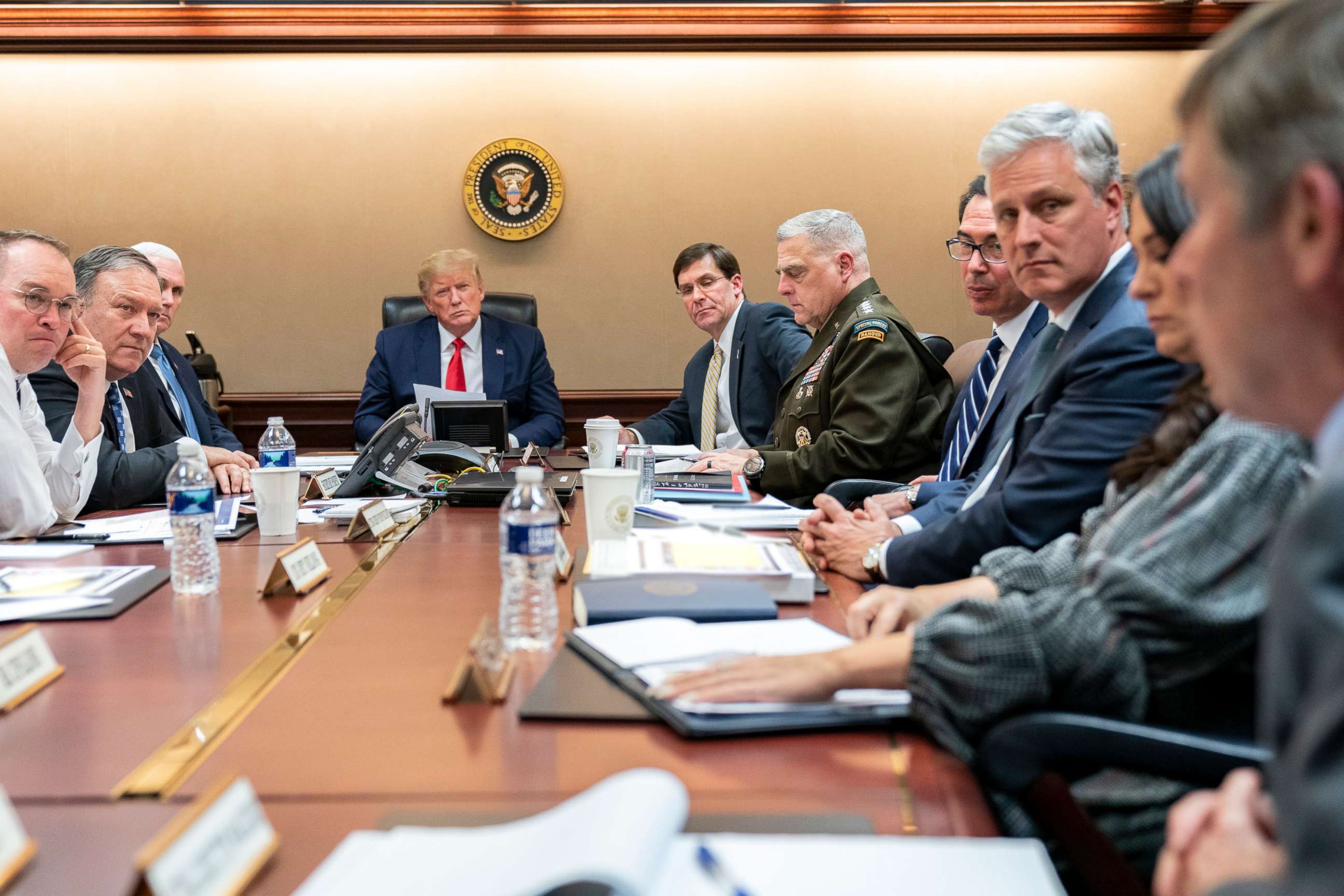
On Wednesday, as he declared that "Iran appears to be standing down," he did not promise any sort of military retaliation. "The fact that we have this great military and equipment, however, does not mean we have to use it," Trump said. "We do not want to use it."
Tensions with Iran sharply escalated last week when, on the president's order, the United States killed a top Iranian commander, Maj. Gen. Qassem Soleimani. The strike in Baghdad launched fears that the United States and Iran may go to war. It followed a deadly attack by an Iranian-aligned militia on a base in Iraq housing Americans; retaliatory airstrikes by the United States; and the subsequent storming of the U.S. Embassy in Baghdad by that same militia.
Several key Republican senators spoke to Trump Tuesday night about the need to not respond militarily to Iran's attack, encouraging him to use conciliatory language after it appeared Iran had tempered its response to Soleimani's death.
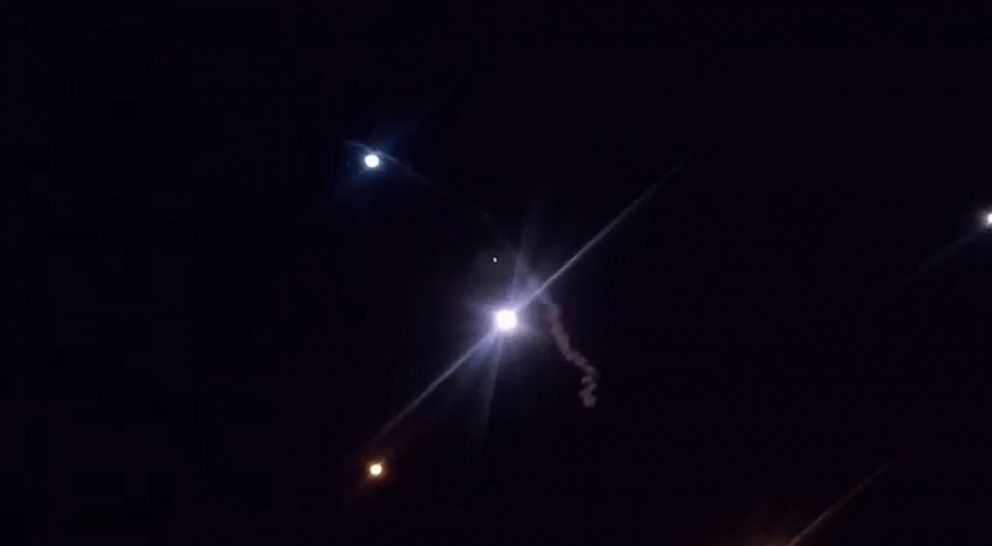
The Republican chairman of the Senate Armed Services Committee, James Inhofe, told ABC News that he spoke with Trump Tuesday night, after Iran's missiles rained down in Iraq. Inhofe said the lack of American casualties prompted the president to favor de-escalation and negotiation.
Trump's first response to the missile attack on American troops came in the form of a tweet.
"All is well!" he wrote.
Trump's speech Wednesday was met with bipartisan praise in Washington. Democrats lauded the president's restraint and pushed for dialogue, too.
"I'm encouraged that President Trump spoke of reducing military tensions, however, it remains a very dangerous and volatile situation, and it is critical that the Administration continues working to de-escalate the conflict while protecting U.S. military and diplomatic personnel overseas," Sen. Maggie Hassan, D-N.H., said in a statement.
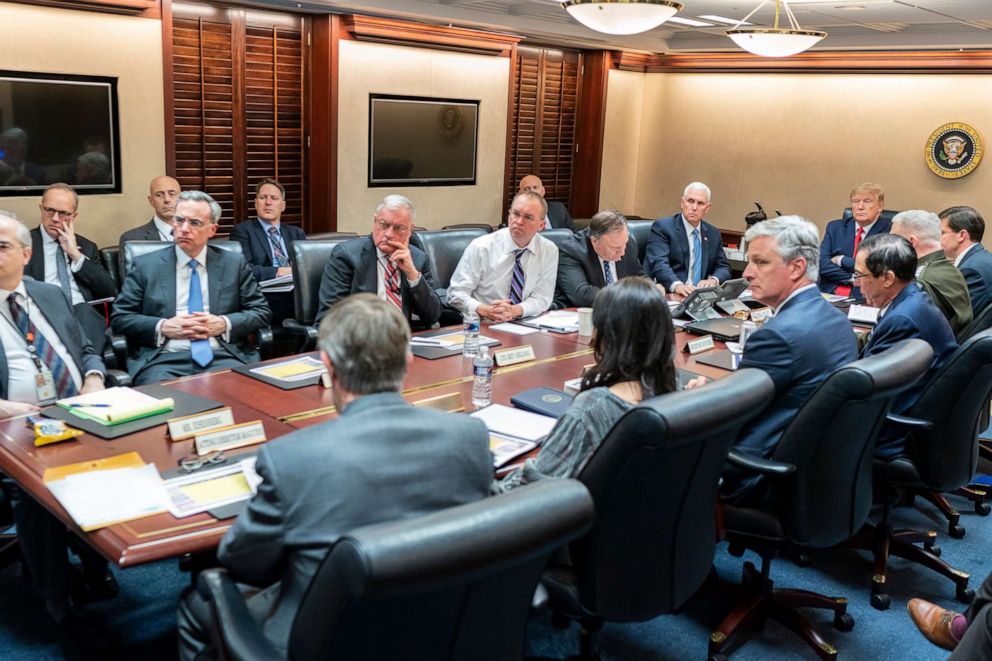
Trump's remarks were not entirely without controversy, though.
He made the dubious assertion that his predecessor, President Barack Obama, helped fund last night's attack by agreeing to a nuclear deal with Iran and other nations in 2015.
"The missiles fired last night at us and our allies were paid for with the funds made available by the last administration," Trump said.
The president repeated false claims that Iran was "given $150 billion dollars" as a result of the agreement -- which Trump incorrectly said was signed in 2013 -- "not to mention $1.8 billion in cash."
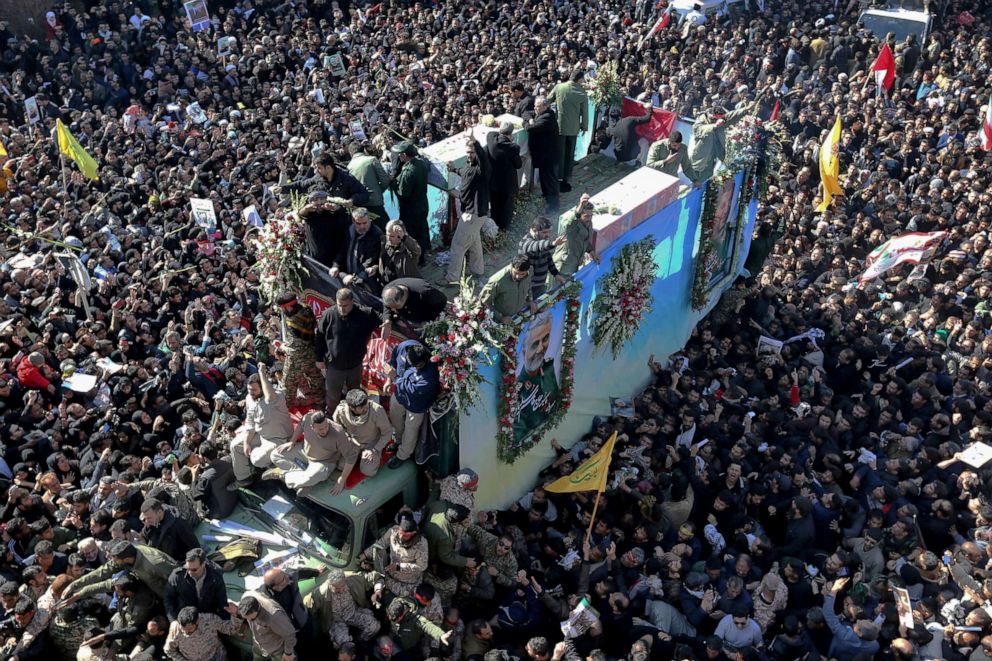
But in reality, Iran was not "given $150 billion dollars"; rather, when it signed the 2015 deal, its own money that had been frozen abroad was freed up -- and $150 billion is a high estimate for those funds. The Obama administration did transfer $1.7 billion to Iran -- not $1.8 billion -- but it was debt owed to Iran for military deals with the U.S. decades before.
There is no evidence any of those funds ended up funding the missiles fired last night.
ABC News' Mariam Khan and Elizabeth McLaughlin contributed reporting to this article.




